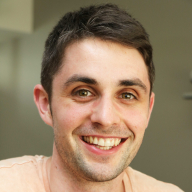
PeterSlattery
Bio
Participation4
Researcher at MIT FutureTech helping with research, communication and operations and leading the AI Risk Repository. Doing what I consider to be 'fractional movement building'.
Previously a behavior change researcher at BehaviourWorks Australia at Monash University and helping with development a course on EA at the University of Queensland.
Co-founder and team member at Ready Research.
Former movement builder for the i) UNSW, Sydney, Australia, ii) Sydney, Australia, and iii) Ireland, EA groups.
Marketing Lead for the 2019 EAGx Australia conference.
Founder and former lead for the EA Behavioral Science Newsletter.
See my LinkedIn profile for more of my work.
Leave (anonymous) feedback here.
Posts 40
Comments418
Topic contributions3
Thanks for this. Is there a place where I can see the sources you are using here?
I am particularly interested in the source for this:
"The other graph here is an interesting one. It's the financial returns to IQ over two cohorts. The blue line is the older cohort, it's from 50 years ago or something. It's got some slope. And then the red line is a newer cohort. And that's a much steeper slope. What that means is basically for every extra IQ point you have, in the new cohort you get about twice as much money on average for that IQ point. "
I think it would be useful, and believe that it doesn't exist. I'd use the resource, and I know several others who also would. Especially, if it was slides and transcripts from good talks. Have you talked to the people behind https://aisafety.info/? This could be something they could support/host.
This is extremely relevant for me as I have been thinking a lot about when to start making more serious donations. I discussed some previous blockers here which haven't been resolved. I am therefore considering commissioning some research (ideally with others).
Broadly I'm interested in better understanding the 'donators dilemma': if you give money now, you forego the later opportunity to 'give better' due to having improved information, and to 'give more' due to passive income. Also to benefit from increased financial security that might enable you to have more direct impact (e.g., by taking a lower paid role that has higher impact, or starting a new initiative).
I want somebody to systematically review the literature for to capture the different arguments and trade-offs for giving now versus later. Then to create some sort of accessible decision-making tool or process that people like me can use to decide on an appropriate threshold or strategy to have WRT to giving now versus later.
If anyone is also interested in funding this or knows some existing tools, then please let me know.
I like this idea, but wonder if CEA or another organization should take the lead on running something like this? Making donations to other people or informal groups is interpersonally and logistically complicated. For instance, people will often refuse a donation if offered it (or when their bank account is requested), and taking money from a person may feel like an obligation, or be misinterpreted. It could work better if they instead donate money to an org who allocates it for a person and contacts them to receive it (and donates it if they don't accept). That organization could also have a database of credible people/groups doing work and a general donation option for people who just want to fund movement building of a certain type.
More generally, I'd like to see more effort to proactively identify and fund people who are doing good movement/community building work. Examples: Talent scout type roles at CEA and some sort of community scan (e.g., a question in the annual community survey and post conferences about anyone who was exceptionally helpful) or input process (e.g., a form where you can notify CEA that someone was particularly helpful in a relevant way).
This could also help address certain oversights. For instance, in my experience, someone can have a lot of positive impact in many regional areas without getting noticed or appropriately supported, which can significantly reduce their impact. Catherine Low and Luke Freeman were once examples of such people.

Do you think that it would be better to just add a helpful or heart emoji to the post instead? I used to leave the same sorts of comments as Ben. These got downvoted occasionally. I interpreted this pattern as being due to people not appreciating these sorts of 'thank you comments'. When emoji react were added, I therefore switched to emoji reacting, as I felt that this would achieve the same outcomes without creating the 'noise' of a 'thank you comment'. However, I could go back to leaving comments if that seems like a better approach.